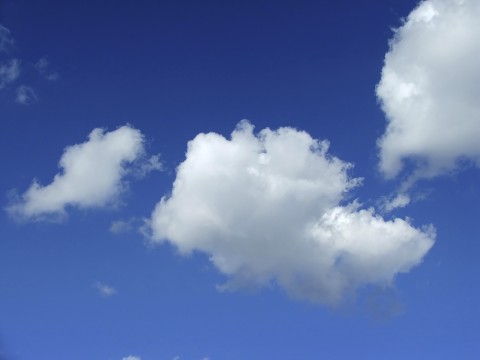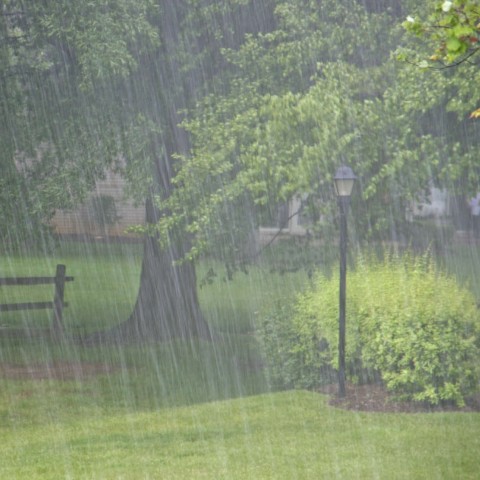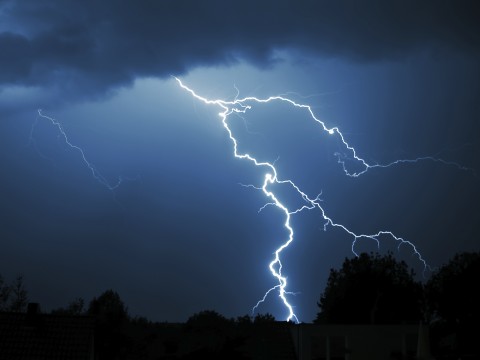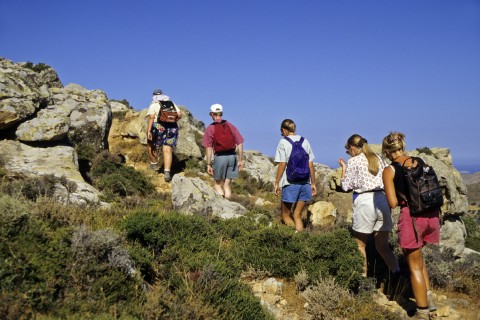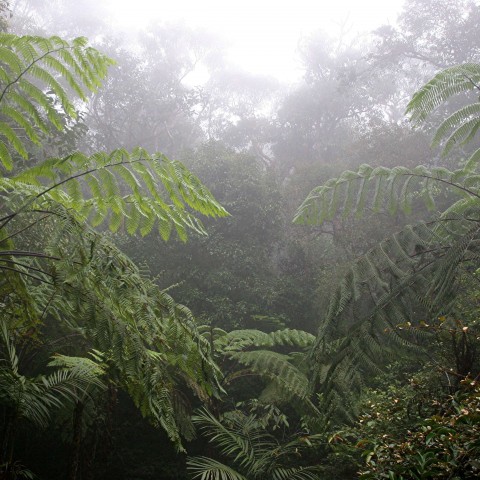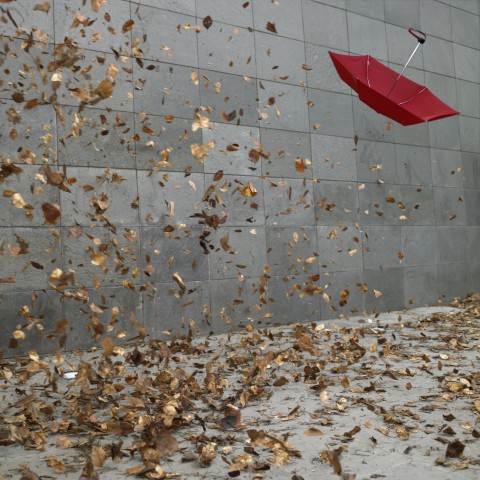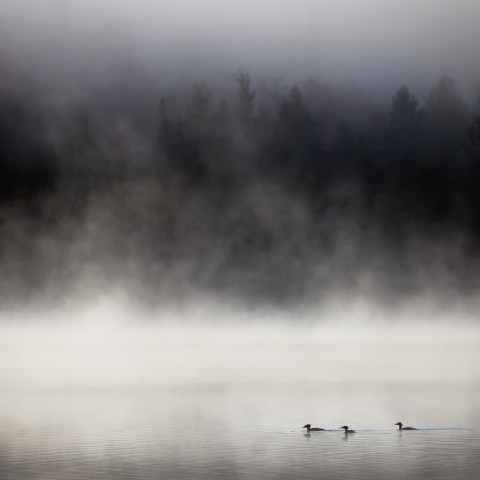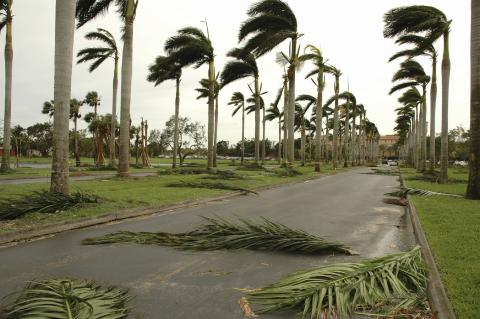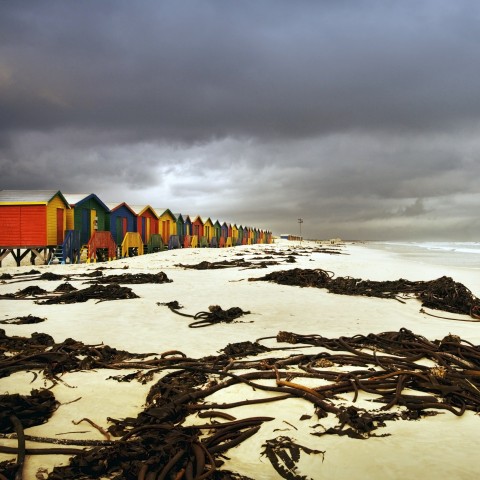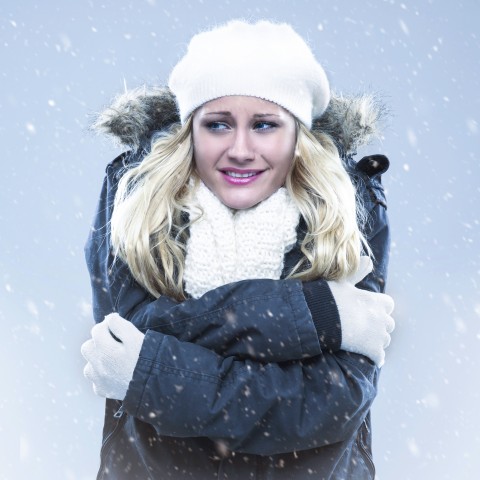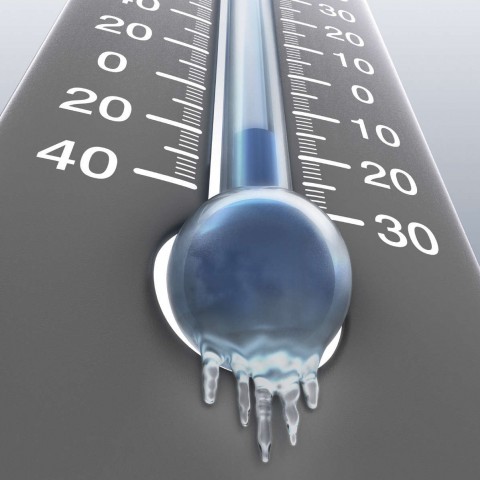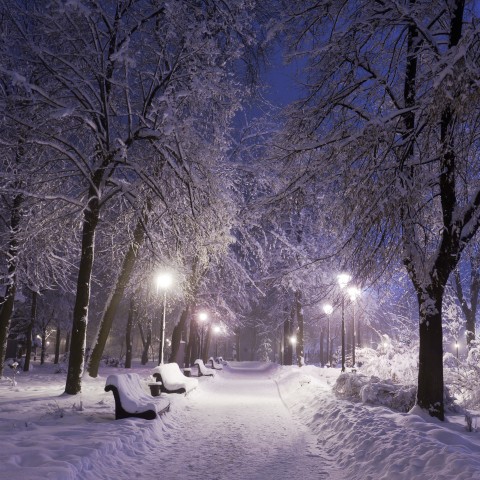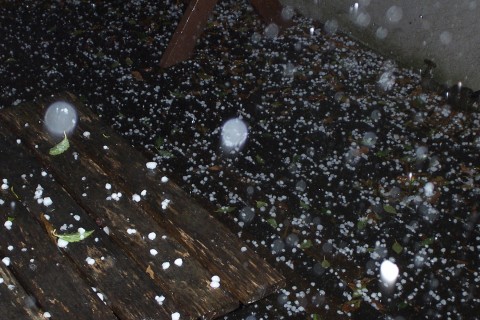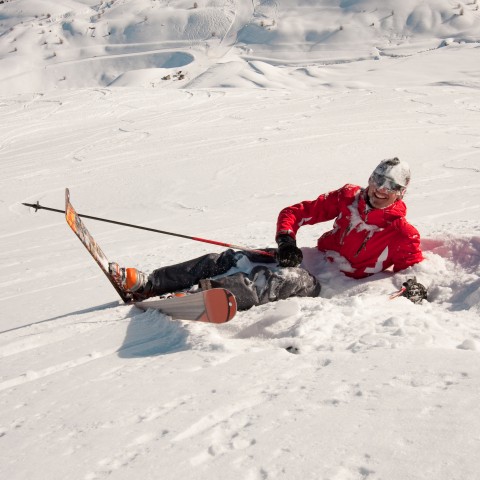Did you know that every minute of the day, one billion tons of rain falls on the earth? Hard to believe, considering the climate crisis! Of course, all that rain is not equally shared across the planet.
So, would you mention this fascinating fact to your new Korean acquaintance? Well, small talk about local weather is actually a great conversation-starter. Everyone cares about the weather and you’re sure to hear a few interesting opinions! Seasons can be quite unpredictable these days and nobody knows the peculiarities of a region better than the locals.
KoreanClass101 will equip you with all the weather vocabulary you need to plan your next adventure. The weather can even be an important discussion that influences your adventure plans. After all, you wouldn’t want to get caught on an inflatable boat with a two-horsepower motor in Hurricane Horrendous!
Table of Contents
- Talking about the weather in Korea
- Words for the first day of spring
- Do You Know the Essential Summer Vocabulary?
- Must-Know Autumn vocabulary
- Winter
- KoreanClass101 can prepare you for any season.
1. Talking about the weather in Korea
If you’re like me, your day’s activity plan is likely to begin with a strong local coffee and a chat about what the sky is doing. After all, being prepared could be the difference between an amazing day and a miserable one! Luckily, it’s not difficult to comment on Korean weather – just start with these simple words and phrases.
1- The rain is falling on the street – 거리에 비가 내리고 있습니다 (Georie biga naerigo itseumnida).
Watercolor artists, take out your paints! You might not be able to venture out on foot today, but just embrace the rain as part of your Korean experience. When the rain stops, the air will be clean and colours vibrant.
2- The snow has covered everything – 눈이 모든 것을 덮었습니다 (Nuni modeun geoseul deopeotsseumnida).
A fresh blanket of snow is irresistibly beautiful. Pull on your boots and beanie, and leave your tracks in this foreign landscape. Don’t resist the urge to build a snowman – you need this!
3- Fluffy cloud – 솜털 같은 구름 (somteol gateun gureum)
When you’re waiting for a warm beach day, fluffy white clouds in a blue sky are a good sign. Don’t forget your sunscreen, as clouds will intensify the UV rays hitting your skin.
4- The water froze on the glass – 물이 유리 위에서 얼었습니다 (Muri yuri wieseo eoreotsseumnida).
Night temperatures can get chilly and might freeze the condensation on your windows. A good way to clear them up is with warm salt water.
5- The heavy rain could cause flash flooding – 이 폭우는 갑작스런 홍수를 일으킬 수 있습니다 (I poguneun gapjjakseureon hongsureul ireukil ssu itsseumnida).
If you’re visiting Korea in the wet season, it’s important to stay informed when heavy rain sets in, so keep an eye on the weather radar. Avoid river activities and rather spend this time making a home-cooked meal and brushing up on your Korean weather words.
6- Flood – 홍수 (hongsu)
If you do get caught in a flood, your destination should no longer be ‘home’, but the nearest high ground.
7- The typhoon has hit – 태풍이 습격하였습니다 (Taepungi seupkkyeokhayeotsseumnida).
Not all countries experience typhoons, but you need to know when to prepare for one! It will be very scary if you’ve never experienced one before. Your local neighbours are the best people to advise you on where to take shelter, as they’ve been doing it for generations. Be sure to get the low-down at the first sign of rough weather!
8- Check the weather report before going sailing – 배를 타기 전에 일기 예보를 체크하세요 (Baereul tagi jeone ilgi yeboreul chekeuhaseyo).
When planning an outdoor activity, especially on a body of water, always be prepared for a change in the weather. Ask your hotel receptionist or neighbour where you can get a reliable daily weather report, and don’t forget your sweater!
9- Today’s weather is sunny with occasional clouds – 오늘의 날씨는 때때로 구름이 끼는 화창한 날씨입니다 (Oneurui nalssineun ttaettaero gureumi kkineun hwachanghan nalssiimnida).
Sunny weather is the dream when traveling in Korea! Wake up early, pack the hats and sunblock and go and experience the terrain, sights and beautiful spots. You’ll be rewarded with happy vibes all around.
10- A rainy day – 비가 오는 날 (biga oneun nal)
Remember when you said you’d save the Korean podcasts for a rainy day? Now’s that day!
11- Scenic rainbow – 아름다운 무지개 (areumdaun mujigae)
The best part about the rain is that you can look forward to your first rainbow in Korea. There’s magic in that!
12- Flashes of lightning can be beautiful, but are very dangerous – 번개의 빛은 아름다울 수는 있지만 매우 위험합니다 (Beonggaeui bicheun areumdaul ssuneun itjjiman maeu wiheomhamnida).
Lightning is one of the most fascinating weather phenomena you can witness without really being in danger – at least if you’re sensible and stay indoors! Did you know that lightning strikes the earth 40-50 times per second? Fortunately, not all countries experience heavy electric storms!
13- 25 degrees Celsius – 섭씨 이십오 도 (seopssi isibo do)
Asking a local what the outside temperature will be is another useful question for planning your day. It’s easy if you know the Korean term for ‘degrees Celsius’.
14- His body temperature was far above the usual 98.6 degrees Fahrenheit – 그의 체온은 정상인 화씨 구십팔 점 육 도를 훨씬 넘었습니다 (Geuui cheoneun jeongsangin hwassi gusippal jeom yuk doreul hwolssin neomeotsseumnida).
Although the Fahrenheit system has been replaced by Celsius in almost all countries, it’s still used in the US and a few other places. Learn this phrase in Korean in case one of your companions develops a raging fever.
15- Today the sky is clear – 오늘은 하늘이 맑습니다 (Oneureun haneuri maksseumnida).
Clear skies mean you’ll probably want to get the camera out and capture some nature shots – not to mention the great sunsets you’ll have later on. Twilight can lend an especially magical quality to a landscape on a clear sky day, when the light is not filtered through clouds.
16- Light drizzle – 가는 이슬비 (ganeun iseulbi)
Days when it’s drizzling are perfect for taking in the cultural offerings of Korea. You could go to the mall and watch a Korean film, visit museums and art galleries, explore indoor markets or even find the nearest climbing wall. Bring an umbrella!
17- Temperature on a thermometer – 온도계에 보이는 온도 (ondogyee boineun ondo)
Because of the coronavirus, many airports are conducting temperature screening on passengers. Don’t worry though – it’s just a precaution. Your temperature might be taken with a no-touch thermometer, which measures infrared energy coming off the body.
18- Humid – 습한 (seupan)
I love humid days, but then I’m also a water baby and I think the two go
together like summer and rain. Find a pool or a stream to cool off in – preferably in the shade!
19- With low humidity the air feels dry – 습도가 낮은 공기는 건조함을 느끼게 합니다 (Seupttoga najeun gonggineun geonjohameul neukkige hamnida).
These are the best days to go walking the hills and vales. Just take at least one Korean friend with you so you don’t get lost!
20- The wind is really strong – 바람이 정말 강합니다 (Barami jeongmal ganghamnida).
A strong wind blows away the air pollution and is very healthy in that respect. Just avoid the mountain trails today, unless you fancy being blown across the continent like a hot air balloon.
21- It’s windy outside – 밖에 바람이 많이 붑니다 (Bakke barami mani bumnida).
Wind! My least favourite weather condition. Of course, if you’re a kitesurfer, a windy day is what you’ve been waiting for!
22- Wet roads can ice over when the temperature falls below freezing – 온도가 섭씨 영하로 떨어지면 물은 얼어 버립니다 (Ondoga seopssi yeongharo tteoreojimyeon mureun eoreo beorimnida).
The roads will be dangerous in these conditions, so please don’t take chances. The ice will thaw as soon as the sun comes out, so be patient!
23- Today is very muggy – 오늘은 후덥지근하겠습니다 (oneureun hudeopjjigeunhageosseumnida).
Muggy days make your skin feel sticky and sap your energy. They’re particular to high humidity. Cold shower, anyone? Ice vest? Whatever it takes to feel relief from the humidity!
24- Fog – 안개 (angae)
Not a great time to be driving, especially in unknown territory, but keep your fog lights on and drive slowly.
25- Hurricane – 허리케인 (heorikein)
Your new Korean friends will know the signs, so grab some food and candles and prepare for a night of staying warm and chatting about wild weather in Korea.
26- Killer tornado – 치명적인 회오리바람 (chimyeongjeogin hoeoribaram)
If you hear these words, it will probably be obvious already that everyone is preparing for the worst! Definitely do whatever your accommodation hosts tell you to do when a tornado is expected.
27- It’s cloudy today – 오늘은 흐립니다 (Oneureun heurimnida).
While there won’t be any stargazing tonight, the magnificent clouds over Korea will make impressive photographs. Caption them in Korean to impress your friends back home!
28- Below freezing temperatures – 영하의 온도 (yeonghaui ondo)
When the temperature is below freezing, why not take an Uber and go shopping for some gorgeous Korean winter gear?
29- Wind chill is how cold it really feels outside – 풍속 냉각은 밖이 얼마나 추운지를 느끼는 정도입니다 (Pungsok naenggageun bakki eolmana chuunjireul neukkineun jeongdoimnida).
Wind doesn’t change the ambient temperature of the air, it just changes your body temperature, so the air will feel colder to you than it actually is. Not all your Korean friends will know that, though, so learn this Korean phrase to sound really smart!
30- Water will freeze when the temperature falls below zero degrees celsius – 온도가 섭씨 영하로 떨어지면 물은 얼어 버립니다 (Ondoga seopssi yeongharo tteoreojimyeon mureun eoreo beorimnida).
If you’re near a lake, frozen water is good news! Forgot your ice skates? Don’t despair – find out where you can hire some. Be cautious, though: the ice needs to be at least four inches thick for safe skating. Personally, I just slide around on frozen lakes in my boots!
31- Waiting to clear up – 맑게 개기를 기다리는 (makge gaegireul gidarineun)
Waiting for the weather to clear up so you can go exploring is frustrating, let’s be honest. That’s why you should always travel with two things: a scintillating novel and your Korean Nook Book.
32- Avoid the extreme heat – 무더위를 피하다 (mudeowireul pihada)
Is the heat trying to kill you? Unless you’re a hardened heatwave hero, definitely avoid activity, stay hydrated and drink electrolytes. Loose cotton or linen garb is the way to go!
33- Morning frost – 아침 서리 (achim seori)
Frost is water vapour that has turned to ice crystals and it happens when the earth cools so much in the night, that it gets colder than the air above it. Winter is coming!
34- Rain shower – 소나기 (sonagi)
Rain showers are typically brief downpours that drench the earth with a good drink of water.
35- In the evening it will become cloudy and cold – 저녁에는 흐려지고 추워질 것입니다 (Jeonyeogeneun heuryeojigo chuwojil geosimnida).
When I hear this on the Korean weather channel, I buy a bottle of wine (red, of course) and wood for the fireplace. A cold and cloudy evening needs its comforts!
36- Severe thunderstorm – 심각한 뇌우 (simgakhan noeu)
Keep an eye on the Korean weather maps if it looks like a big storm is coming, so you’ll be well-informed.
37- Ice has formed on the window – 얼음이 창문에 생겼습니다 (Eoreumi changmune saenggyeotsseumnida).
You could try this phrase out on the hotel’s helpful cleaning staff, or fix the problem yourself. Just add a scoop or two of salt to a spray bottle of water – that should work!
38- Large hailstones – 커다란 우박 덩어리 (keodaran ubak ddeongeori)
As a kid, I found hail crazy exciting. Not so much now – especially if I’m on the road and large hailstones start pummeling my windscreen!
39- Rolling thunder – 천둥 소리 (Cheondung sori)
The rumble of rolling thunder is that low-volume, ominous background sound that goes on for some time. It’s strangely exciting if you’re safely in your hotel room; it could either suddenly clear up, or escalate to a storm.
40- Sleet – 진눈깨비 (jinnunkkaebi)
Sleet is tiny hard pieces of ice made from a mixture of rain and melted snow that froze. It can be messy, but doesn’t cause major damage the way hail does. Pretty cool to know this word in Korean!
2. Words for the first day of spring
You know the feeling: your heart skips a beat when you wake up and spring has sprung! Spring will reward you with new blossoms everywhere, birdsong in the air, kittens being born in the neighborhood and lovely views when you hit the trails. Pack a picnic and ask a new Korean friend to show you the more natural sights. Don’t forget a light sweater and a big smile. This is the perfect time to practice some Korean spring words!
3. Do You Know the Essential Summer Vocabulary?
Summer! Who doesn’t love that word? It conjures up images of blue skies, tan skin, vacations at the beach and cruising down the coast in an Alfa Romeo, sunglasses on and the breeze in your hair. Of course, in Korea there are many ways to enjoy the summer – it all depends on what you love to do. One thing’s for sure: you will have opportunities to make friends, go on picnics, sample delicious local ice-cream and maybe even learn to sing some Korean songs. It’s up to you! Sail into Korean summer with this summer vocab list, and you’ll blend in with ease.
4. Must-Know Autumn vocabulary
Victoria Ericksen said, “If a year was tucked inside of a clock, then autumn would be the magic hour,” and I agree. Who can resist the beauty of fall foliage coloring the Korean landscape? Birds prepare to migrate; travelers prepare to arrive for the best weather in Korea.
The autumnal equinox marks the moment the Sun crosses the celestial equator, making day and night almost equal in length. The cool thing about this event is that the moon gets really bright – the ‘harvest moon’, as it’s traditionally known.
So, as much as the change of season brings more windy and rainy days, it also brings celebration. Whether you honor Thanksgiving, Halloween or the Moon Festival, take some time to color your vocabulary with these Korean autumn words.
5. Winter
Winter is the time the natural world slows down to rest and regroup. I’m a summer girl, but there are fabulous things about winter that I really look forward to. For one, it’s the only season I get to accessorize with my gorgeous winter gloves and snug down coat!
Then, of course, there’s ice skating, holiday decorations and bonfires. As John Steinbeck said, “What good is the warmth of summer, without the cold of winter to give it sweetness?” Get ready for the cold season with our list of essential Winter words!
6. KoreanClass101 can prepare you for any season.
Now that you know how to inquire and comment on the weather in Korea, you
can confidently plan your weather-ready travel itinerary. How about this for an idea: the next
time you’re sitting in a Korean street café, try asking someone local this question:
“Do you think the weather will stay like this for a few days?” If you loved learning these cool Korean weather phrases with us, why not take it a step further and add to your repertoire? KoreanClass101 is here to help!





